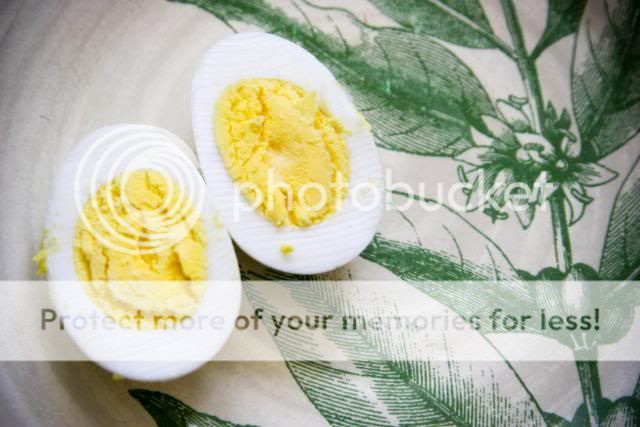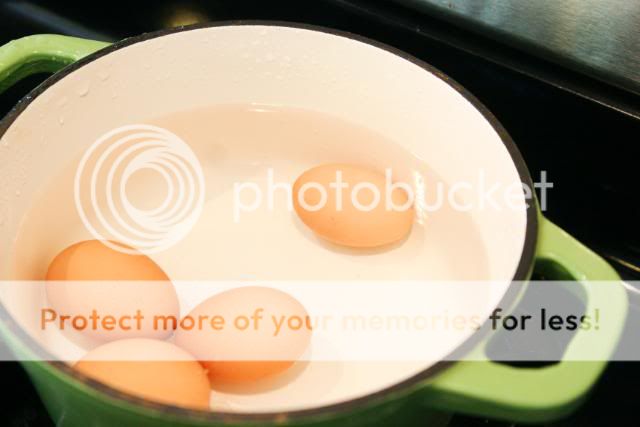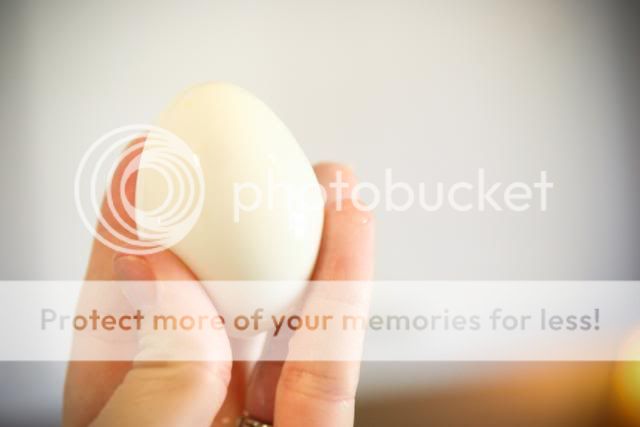
Rumor has it that our pasture-raised eggs are hard to peel.
I would most definitely agree with that statement.
My girls love to eat and snack on boiled eggs and I'm delighted to feed them to them. However, I use to secretly dread making them because I never knew if they were going to "turn out" or not.
Through trial and error I believe I have found a way to boil and peel our eggs perfectly- as opposed to looking like you got the shell off with a hammer and a chisel.
Step 1: Place your eggs in a saucepan and cover with water about an inch about the eggs on HIGH heat. **IMPORTANT: SPRINKLE SEA SALT IN THE WATER.**

Step 2: Once your eggs begin to boil, reduce heat to medium (so that they won't crack) and set a timer for 9 minutes. Continue to let eggs boil on medium heat.
Step 3: Once timer goes off. Remove eggs from heat.
Step 4: Immediately place eggs into cool water and let water run over them.
Step 5: Lightly tap egg on the counter top to loosen the shell up.

Step 6: THIS IS THE TRICK: There is a layer of skin between the shell and the egg white called the "inner membrane". This tends to be a little thicker on pasture-raised eggs. But THIS is the trick. You have to find that skin and get under it and peel that off along with the egg shell. It should come off relatively easy once you find it and should pull the shell off at the same time.

Step 7: Find a sweet little helper. This really is a great way to get kids to help you in the kitchen. Once they get the hang of peeling eggs, its a piece of cake for them. My girls LOVE to peel eggs.

Step 8: The final product is shear beauty.


And tastes mighty delicious too!

AND you can also save the egg shells and use them as a natural plant fertilizer and sprinkle them in your garden.







 facebook
facebook